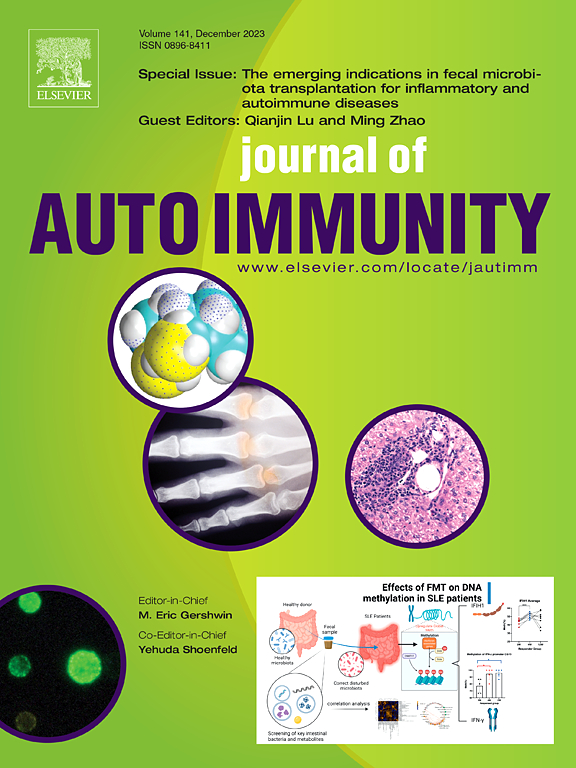Advances in chimeric antigen receptor T cell therapy for autoimmune and autoinflammatory diseases and their complications
IF 7
1区 医学
Q1 IMMUNOLOGY
引用次数: 0
Abstract
Chimeric antigen receptor T (CAR-T) cells are genetically engineered T cells expressing transmembrane chimeric antigen receptors with specific targeting abilities. As an emerging immunotherapy, the use of CAR-T cells has made significant breakthroughs in cancer treatment, particularly for hematological malignancies. The success of CAR-T cell therapy in blood cancers highlights its potential for other conditions in which the clearance of pathological cells is therapeutic, such as liver diseases, infectious diseases, heart failure, and diabetes. Given the limitations of current therapies for autoimmune diseases, researchers have actively explored the potential therapeutic value of CAR-T cells and their derivatives in the field of autoimmune diseases. This review focuses on the research progress and current challenges of CAR-T cells in autoimmune diseases with the aim of providing a theoretical basis for the precise treatment of autoimmune diseases. In the future, CAR-T cells may present new therapeutic modalities and ultimately provide hope for patients with autoimmune diseases.
嵌合抗原受体T细胞治疗自身免疫性和自身炎性疾病及其并发症的研究进展。
嵌合抗原受体T (CAR-T)细胞是一种基因工程T细胞,表达具有特异性靶向能力的跨膜嵌合抗原受体。作为一种新兴的免疫疗法,CAR-T细胞的使用在癌症治疗特别是血液系统恶性肿瘤方面取得了重大突破。CAR-T细胞治疗血癌的成功凸显了它在清除病理细胞治疗其他疾病方面的潜力,如肝病、传染病、心力衰竭和糖尿病。鉴于当前自身免疫性疾病治疗方法的局限性,研究人员积极探索CAR-T细胞及其衍生物在自身免疫性疾病领域的潜在治疗价值。本文就CAR-T细胞在自身免疫性疾病中的研究进展及面临的挑战进行综述,旨在为自身免疫性疾病的精准治疗提供理论依据。在未来,CAR-T细胞可能会提出新的治疗方式,并最终为自身免疫性疾病患者带来希望。
本文章由计算机程序翻译,如有差异,请以英文原文为准。
求助全文
约1分钟内获得全文
求助全文
来源期刊

Journal of autoimmunity
医学-免疫学
CiteScore
27.90
自引率
1.60%
发文量
117
审稿时长
17 days
期刊介绍:
The Journal of Autoimmunity serves as the primary publication for research on various facets of autoimmunity. These include topics such as the mechanism of self-recognition, regulation of autoimmune responses, experimental autoimmune diseases, diagnostic tests for autoantibodies, as well as the epidemiology, pathophysiology, and treatment of autoimmune diseases. While the journal covers a wide range of subjects, it emphasizes papers exploring the genetic, molecular biology, and cellular aspects of the field.
The Journal of Translational Autoimmunity, on the other hand, is a subsidiary journal of the Journal of Autoimmunity. It focuses specifically on translating scientific discoveries in autoimmunity into clinical applications and practical solutions. By highlighting research that bridges the gap between basic science and clinical practice, the Journal of Translational Autoimmunity aims to advance the understanding and treatment of autoimmune diseases.
 求助内容:
求助内容: 应助结果提醒方式:
应助结果提醒方式:


